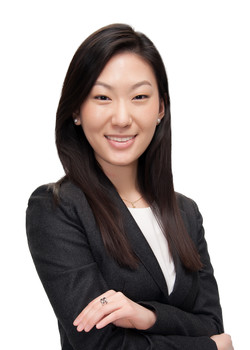Program Associate of Investment Management Team at the Research Investment for Global Health Technology (RIGHT) Fund

Global health is a growing priority for Korea’s international cooperation agenda as the COVID-19 pandemic has highlighted its well-executed pandemic response, providing opportunities for increased leadership in global health.
Korea has stepped up multilaterally, emphasizing the importance of health as a human right and an essential factor for socio-economic development, focusing on equitable access to global public goods.
Furthermore, part of the pandemic response fostered technological innovation and unleashed Korea's competency to develop "commercializable" products and of value to global health.
With this said, there will be a growing demand for public procurement on global health products meeting both Korea’s commitment to global health and maximizing equitable access.
As the Program Associate of the Investment Management team at the Research Investment for Global Health Technology Fund (RIGHT Fund), which is an international public-private partnership that supports the R&D of innovative technologies with the capacity to tackle endemic and emerging infectious diseases in developing countries, I recently attended the KAIST Executive Program on International Competitive Bid and Global Procurement Management Program (IGMP).
This program educates government agencies and business leaders on the public procurement market to prepare them for entering international competitive bidding.
Because I work on the management of R&D projects of RIGHT Fund, my goal for joining this course was to understand the public procurement procedure, especially in the context of global health U.N. procurement agencies such as UNICEF.
RIGHT Fund’s goal is to ultimately deliver safe and effective products accessible to those most in need in developing countries.
A significant fact I learned through this IGMP course is that Korea’s current presence in the global health U.N. procurement market is significantly low in proportion to Korea’s strong export-driven economy and being one of the top 10 largest GDP.
U.N. procurement market size reached over $19.9 billion in procurement as of 2019, with $3.2 billion spent specifically on pharmaceuticals, contraceptives, and vaccines - the largest procurement segment.
However, Korea's total procurement value for 2019 was $225 million, which accounted for only 1.13 percent of the total U.N. procurement market share.
It was not because of Korea’s lack of innovation or competency of health technologies.
Whenever I read on research proposals submitted to RIGHT Fund, I realize there is incredible potential in domestic healthcare capabilities and innovation.
Through the IGMP course, I learned that one of the underlying causes of this low figure was the lack of information on international competitive bidding, its potential market size, and a specific strategy to enter the market.
Thus, there is a need to help domestic companies foster international bidding projects, provide technical support such as writing requests for proposals (RFPs) following the U.N. procurement guidelines, and encourage early engagement on the pre-bidding stages, including market analysis and active communication through agency-specific briefings. This includes partnering up with international organizations that have prior experience with the U.N. procurement procedure.
Through the IGMP course, it became clearer for me that RIGHT Fund plays a critical role in this paradigm. RIGHT Fund fills up the lack of market incentives for industries’ R&D on infectious diseases and expands the engagement of Korean companies to collaborate and develop strategic partnerships with global product development partnerships (PDPs). RIGHT Fund supports R&D that align with target product profiles set forth known as the WHO prequalification (P.Q.).
WHO PQ approval may qualify a product in entering the bidding competition for the global health market. Many countries and non-governmental organizations also rely on the pre-qualified list of WHO to guide their procurement purchase. PDPs provide guidance and support anywhere from early-stage product development to reach the market. Thus, the engagement between PDPs and Korean companies is critical.
Considering the emerging demand of the global health market and Korean technology and innovation capabilities, RIGHT Fund provides an opportunity to bridge the gap.
At the end of the IGMP course, I have thought that Korea needs to grow further its interest in the global public health market from now on. A growing interest in the global public health market could lead to sustainable support of R&D projects for infectious diseases in Korea.
I hope to see a shift of Korean companies' perspective to take advantage of the growing demand of public procurement and see it as a potential business strategy not only to advance healthcare technology for infectious diseases but also to relieve the global burden of disease.
I very much look forward to seeing how RIGHT Fund investments impact the global public health market, ultimately reaching those in need and providing equitable access to global health public goods. Through my work at the RIGHT Fund, I’ll do my best to make this vision a reality.
Bora Viole Kim is Program Associate of Investment Management Team at the Research Investment for Global Health Technology (RIGHT) Fund. Kim received a bachelor’s degree in Biology from the University of Nevada, Las Vegas, and a master’s degree in International Cooperation at Yonsei University Graduate School of International Studies. -- Ed.

